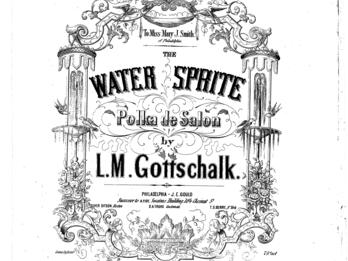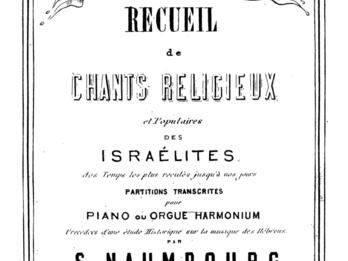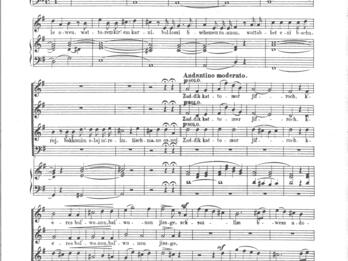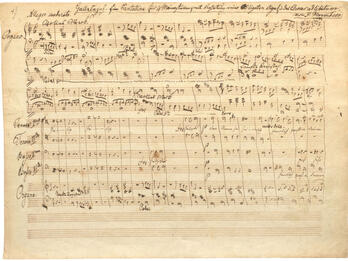Super flumina Babylonis
Charles-Valentin Alkan
1859
Credits
Paris: Richault, n.d. [1859]. Plate 13296 R. Reprint—Paris: Billaudot, ca. 1971.
Published in: The Posen Library of Jewish Culture and Civilization, vol. 6.
You may also like

The Water Sprite—Polka

Whisky
This humorous Yiddish poem describes the use of whisky throughout a Jewish life cycle.
Songbird, or Six Folk Songs

Aggudat Shirim
Song of the Railway

Psalm 92, Od yenuvun (They Shall Still Bring Forth)

Related Guide
Music and Opera in Jewish Culture
One of the most striking changes in European Jewish culture toward the later eighteenth century was marked by the entry of Jews into art music, opera houses, and the stage.
Creator Bio
Charles-Valentin Alkan
Charles-Valentin Alkan (born Charles-Henri-Valentin Morhange) was raised in Paris, receiving instruction in music from an early age. Alkan entered the Conservatoire de Paris as a child and by early adulthood was a well-respected pianist. Known almost entirely for his piano compositions, Alkan wrote technically difficult music that largely defied conventions of the day. He associated with influential figures of the romantic movement such as Frédéric Chopin and Victor Hugo, though his music generally avoids the more bucolic themes of romanticism in favor of the grotesque. Alkan retired relatively young, spending much of his life studying Talmud and other literature, withdrawn from urban life.
You may also like

The Water Sprite—Polka

Whisky
This humorous Yiddish poem describes the use of whisky throughout a Jewish life cycle.
Songbird, or Six Folk Songs

Aggudat Shirim
Song of the Railway




